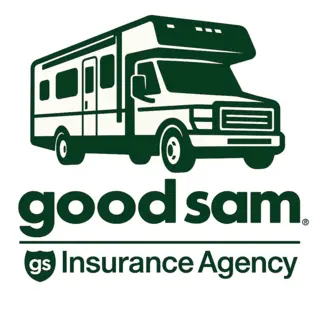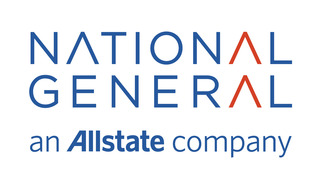6 Best RV Insurance Companies of February 2026
What to know about RV insurance
- RV insurance is essential for both full-time RV living and occasional trips.
- Premiums vary based on your driving record, RV model and location, and may change annually.
- Much like car insurance, it pays to shop around and get new quotes once your policy is up for renewal.
- Our top picks include Progressive, Auto-Owners Insurance and National General.
How we chose our top picks
Money’s editorial team has evaluated RV insurance providers since 2016. In our research, we consider customer satisfaction, financial stability, coverage options, and availability. We reviewed 15+ companies and conducted over 1,000 hours of research on coverage, available discounts and customer satisfaction from third parties and regulatory agencies.
Read the full methodology to learn more.
Our top picks for the best RV insurance companies
- Progressive - Best Overall
- Auto-Owners Insurance - Best for Customer Satisfaction
- Nationwide - Best for Discounts
- National General - Best for Specialized Coverages
- Good Sam - Best for Comparing Multiple Providers
- Roamly - Best for Renting Out Your RV
- Disappearing deductibles
- Accident forgiveness for claims under $500
- Add-ons available for pet injury and roof damage
- Often recommended by users in popular RV insurance forums
- Rates differ based on whether you buy online or through an agent
- Discounts aren't available in all states
- Middling customer satisfaction ratings from J.D. Power and Crash Network
- A.M. Best Rating
- A+ (Superior)
- Crash Network Insurer Report Card
- C
- J.D. Power U.S. Auto Claims Satisfaction Study
- Below average (672/1,000)
- NAIC Complaint Index
- Better than most (0.61)
- Discounts
- Multi-vehicle, original owner, pay-in-full, responsible driver, prompt payment, disappearing deductibles and more
- Bundles
- Auto, renters, homeowners, motorcycle or boat insurance bundle
Why we chose it: Progressive is our top RV insurer for its competitive catalogue of RV insurance products and its rare combination of diminishing deductibles and accident forgiveness.
Progressive will reduce your deductible by 25% every time you renew your policy if you haven't filed a claim or gotten a traffic violation. After several claims-free periods, RV owners can get their deductibles down to zero. This benefit is included for free when you purchase comprehensive and collision coverage for vehicles valued at $25,000 or more.
Accident forgiveness for a claim of $500 or less is included at no cost — this means your premium won't increase if you file a claim of $500 or less for your first “at fault” accident. After five years without an accident or traffic violation, your first claim qualifies for accident forgiveness even if it exceeds $500.
- Low NAIC complaint index
- High J.D. Power Customer Satisfaction rating in 10 states
- B grade on Crash Network's Insurer Report Card
- You can only get a quote by contacting a local agent
- Only available in 26 states
- A.M. Best rating
- A++ (Superior)
- Crash Network Insurer Report Card
- B
- J.D. Power U.S. Auto Claims Satisfaction Study
- Below average (692/1,000)
- NAIC Complaint Index
- Better than most (0.46)
- Discounts
- Payment history, paid-in-full, paperless billing, advance quote, safety features, driver safety program, mature drivers and favorable loss history
Why we chose it: Auto-Owners Insurance has an impressive customer service record. The insurer has fewer complaints with the National Association of Insurance Commissioners (NAIC) than most of its competitors.
Auto-Owners Insurance is also one of the few insurers with a B grade in Crash Network's 2025 Insurer Report Card. For this survey, repair shops nationwide evaluate whether insurers prioritize quality repairs and good customer service for motorists. Most major insurers in the U.S. got a grade of C+ or less.
- Vast array of discounts for easy bundling and savings
- Add-ons include coverage for glass windshield replacement
- Optional towing coverage includes lodging, transportation and meals
- C grade on Crash Network's Insurer Report Card
- No online quotes available
- Nationwide's website may not list all the available discounts
- A.M. Best rating
- A (Excellent)
- Crash Network Insurer Report Card
- B
- J.D. Power U.S. Auto Claims Satisfaction Study
- Above average (728/1,000)
- NAIC Complaint Index
- Better than most (0.70)
- Discounts
- RV safety course, RV association, paid-in-full, good driver, continuous coverage and more
Why we chose it: Most RV insurers offer discounts, but Nationwide's list is notably extensive. The insurer offers over 10 different discounts including discounts for staying claims-free and installing safety devices, like smoke detectors.
Beyond standard home, car and life insurance bundles, Nationwide offers unique opportunities to save money. You can get a premium discount for taking safety courses, joining an RV organization like the National RV Association and paying your annual policy upfront. Nationwide will also reduce your premium if you've insured your RV with another provider and maintained continuous coverage. Note that not all discounts are listed on Nationwide's website, and some only come up during the quoting process.
- Over 15 coverage options designed for every type of RV owner
- Option to suspend collision and liability coverage when your RV is in storage
- Full replacement cost coverage includes expert service to help you find a new RV
- Quotes available online and by phone
- Not as many discount options as competitors
- Limited information about policies on its website
- D+ rating on Crash Network's Insurer Report Card
- A.M. Best rating
- A (Excellent)
- Crash Network Insurer Report Card
- D+
- J.D. Power U.S. Auto Claims Satisfaction Study
- Below average (672/1,000)
- NAIC Complaint Index
- Worse than most (3.45)
- Discounts
- Diminishing deductible, storage savings and low mileage discount
Why we chose it: National General offers a generous purchase price guarantee during the vehicle model's first nine years on the market. Other insurers don't offer this if the vehicle is more than five years old. This optional benefit reimburses the customer up to the original cost of the vehicle if it's stolen or totaled. RVs are also eligible for full replacement cost coverage during their first five model years, regardless of ownership (some companies limit this benefit to original owners).
- Partners with insurers that reduce your premium while the RV is in storage
- Discounts on campsites, gear stores, fuel and more
- Online quotes available
- Limited information on customer satisfaction
- Not a direct insurer — offers insurance by Progressive, Foremost, Safeco and National General
- A.M. Best rating
- Varies per insurer
- Crash Network Insurer Report Card
- Varies per insurer
- J.D. Power U.S. Auto Claims Satisfaction Study
- Vary by provider
- NAIC Complaint Index
- Varies per insurer
- Discounts
- Varies per insurer
Why we chose it: Good Sam Insurance Agency a great option for people who want to compare policies from multiple providers on a single platform and with the help of licensed agents who can match you to the right company.
Good Sam partners with well-known insurers like Progressive, Foremost, Safeco and National General. The company also collaborates with MexicoInsuranceOnline.com to connect clients to Mexico-based insurers that offer add-ons for cross-border travel, whether for single-day trips or extended stays.
- Coverage continues if you rent out your RV
- Offers motorcycle and boat coverage
- Available in all 50 states and some provinces of Canada
- Though Roamly offers boat and motorcycle insurance, there's no bundling discount
- A.M. Best rating
- Underwriters have a rating of A- or higher
- Discounts
- Military discount
- Crash Network Insurer Report Card
- Varies per underwriting insurer
- J.D. Power U.S. Auto Claims Satisfaction Study
- Varies per underwriting insurer
- NAIC Complaint Index
- Varies per underwriting insurer
- Discounts
- Vary per underwriting insurer
Why we chose it: Most insurers decline to insure you and may even drop your coverage if you rent the vehicle to someone else. With Roamly, you can rent out your RV and the company won't cancel your coverage.
You can keep your original insurance policy and pay for a specialized rental policy that covers you during the rental period through a platform like Outdoorsy (owned by Roamly). You don't have to notify Roamly that you're renting out the RV or pay any additional rental fees (something other insurers may charge). Once the rental period is over, Roamly will resume your regular coverage.
Other RV insurance companies we considered
RVInsurance.com
RVInsurance.com can help you find a suitable policy, whether you use your RV for vacationing or as your residence. The agency works with Foremost, National General and Safeco. These companies cover all RV types, from motorhomes to campers. They offer several policy add-ons, such as full replacement cost, full-timers liability coverage and roadside assistance.
Why we didn’t pick it: Though RVinsurance.com partners with reputable insurers it didn’t stand out when compared to similar RV insurance agencies.
AAA
AAA offers coverage for different types of RVs and some of its policies also cover personal effects such as electronics.
Why we didn’t pick it: AAA didn’t make our list because coverage information isn’t readily accessible. You also have to be a member, which costs anywhere from $65 to $125 annually.
Allstate
Allstate’s policies include emergency travel expenses if you’re over 50 miles from home when your RV breaks down and the issue is covered under the policy.
Why we didn’t pick it: Allstate is not on our main list because it only provides quotes through its sales agents and the information on its website is limited. That said, RV owners interested in Allstate insurance can check out National General, an Allstate company and one of our top picks.
Geico
Geico offers coverage options comparable to those of other companies on our list (such as total loss replacement, emergency expenses coverage and vacation liability).
Why we didn’t pick it: Geico’s policies aren't available nationwide, and its website lacks crucial details, such as available discounts.
What You Need to Know About RV Insurance
Specialized RV insurance coverage combines the benefits of auto insurance and homeowner's insurance to cover common setbacks RV owners face. Those include mechanical failure, inclement weather, theft or damage to the vehicle or your belongings, and even emergency lodging and transportation if you lose access to your RV while traveling.
Most states require a minimum of liability insurance but if you financed your purchase, your lender likely requires comprehensive insurance coverage until you pay off the loan.
Read on for a detailed breakdown of the coverages and costs.
How much is RV insurance?
The cost of RV insurance depends on the amount of coverage you select, your driving record, the type of vehicle, its age, condition, features and usage.
An annual policy for a travel trailer costs $600, according to data published by Progressive. This includes liability, comprehensive and collision coverage. The same coverage for a motorhome costs a little over $1,000. If you're taking out a liability-only policy, the average premium is much lower, at about $125 per year.
Your RV insurance premium is calculated based on the type of RV you own, the age and condition of your trailer or motorhome, where you live, your driving history, your claims history and your credit score.
Coverage options for part-time RVers
People who use their motorhomes for weekend getaways or periodic vacations should at least have basic liability coverage that meets their state's minimum requirements.
For added peace of mind, part-time RVers may also want:
- Property damage liability coverage: Pays for damages you cause to another person’s property or vehicle.
- Bodily injury liability coverage: Reimburses the medical expenses of those you injure in an at-fault accident.
- Collision coverage: Covers repairs to your RV after an accident with another vehicle, whether you’re at fault or not.
- Comprehensive coverage: Pays for damages caused by theft, vandalism, natural disasters, fire and other non-collision accidents.
- Uninsured/Underinsured motorist coverage: Covers the cost of RV repairs and your medical payments if you’re in an accident caused by a driver without insurance or with insufficient coverage.
- Personal Injury Protection (PIP): Covers medical expenses for you and your passengers in the event of an accident, no matter who is at fault. It may also cover lost wages.
- Campsite/vacation liability coverage: Reimburses your legal expenses if you're held liable for injuries or losses incurred by a non-family member at a campsite or inside your RV.
- Roadside assistance: Offers towing and emergency assistance should your RV experience a flat tire, battery discharge or other malfunction.
Coverage options for full-time RVers
Full-time RVers may want to add the following to their base policy:
- Personal property coverage: Covers the cost of replacing any damaged or stolen personal belongings such as clothing, furniture, jewelry, and computers.
- Total loss replacement: Reimburses you for the original purchase price or replaces your RV with an equal model if your vehicle is stolen or totaled in an accident.
- Full-time RV liability coverage: Adds additional coverage for liability and medical expenses if you live in your RV for six months or more each year.
- Emergency expense allowance: Covers living and travel expenses such as car rentals, lodging and food if your RV breaks down or is in an accident, leaving you stranded while traveling.
- Supplemental benefits: This adds coverage for such items as awnings, satellite dishes and solar panels, and even for pet injuries that happen in the vehicle.
- Loss assessment: Helps cover fees charged by RV associations for damage to common areas, such as in a campsite.
What RV insurance doesn't cover
Generally, RV insurance includes the following exclusions:
- Normal wear and tear: RV insurance protects your vehicle against unexpected events, not for the cost of routine maintenance or deterioration.
- Mold damage, fungi or rot: Insurers view mold as a sign of neglect and will not cover damages, except for those directly linked to water damage caused by a covered event.
- Certain types of water damage: RV insurance doesn't cover water damage caused by regular wear and tear, freezing temperatures or manufacturer defects.
- Earthquake damage: RV insurance covers most natural disasters, including floods, storms and fires. But, depending on the insurer, earthquake coverage may not be included.
How to buy RV insurance
Here are some tips on how to find and purchase the right RV insurance coverage for you.
1. Take stock of how you use your RV and what you want to protect
People who live in their RV full time have different insurance needs than occasional users or people who rent out their vehicle.
If you're renting an RV, you'll need an insurance policy specifically designed for that purpose. You can get it through the rental company or your auto insurer. Your existing auto policy may also provide some rental RV coverage. However, it may not apply in certain states or for trips over 30 days.
2. Shop around for RV insurance quotes
For the best rates, compare quotes using an online marketplace or consult an independent insurance agent.
During this step, it's important not to withhold details from your insurance provider. For instance, you might get a cheaper premium by not disclosing that you plan to live in the RV, but if you were to file a claim and the insurer discovered that you misrepresented information, they could reject the claim and cancel your coverage.
3. Look for discounts and policy bundles
There are discounts for installing safety features, staying accident-free for at least three years, storing your vehicle seasonally and more.
You can also snag a lower rate by bundling your RV policy with your home or car insurance. Bundling can help you avoid the hassle of dealing with different companies when you have to file multiple claims — for, say, weather damage to your home and vehicles.
Methodology
To select the best RV insurance companies, we reviewed the following factors:
- Coverage options and discounts: We picked companies that offer a comprehensive selection of coverage options and premium discounts.
- Customer satisfaction: We favored companies with above-average scores in J.D. Power's latest U.S. Auto Insurance Study and considered customer feedback from review sites such as the Better Business Bureau (BBB). We also reviewed the Crash Network's Insurer Report Card, which surveys auto repair shops nationwide to evaluate how insurers handle claims, repairs and payments.
- Financial strength: We considered each insurer's financial stability, as evidenced by its AM Best financial strength rating (FSR). AM Best is a credit rating agency that assesses insurance companies' creditworthiness.
- Complaint index: We reviewed the National Association of Insurance Commissioners (NAIC) complaint index of each company in the category of private passenger insurance and favored those with few complaints. In cases where national insurers had multiple subsidiaries nationwide, we selected the subsidiary with the largest market share.
Latest News in RV Insurance
After years of rising insurance premiums, customers seem to have had enough. In 2025, a record 57% of drivers shopped for auto insurance, and 29% actually switched companies, according to J.D. Power's 2026 insurance outlook.
Even "high-value" customers — more loyal customers and those who bundle policies — are now more likely to leave their current provider due to rising premiums, especially when the reason behind the rate increases isn't clearly explained.
One way insurers can compete is by improving the customer's experience on digital platforms (47% of customers bought their policy online, not through an agent or a call center) and offering usage-based insurance (UBI). The latter uses telematics to price policies based on driving habits and mileage. A pay-for-how-you-drive approach could be especially appealing for RV owners who drive seasonally or fewer miles than typical drivers.
RV Insurance FAQs
Does RV insurance cover water damage?
What states require trailer insurance?
What is vacation liability RV insurance?
Summary of Money’s Best RV Insurance of February 2026
- Progressive - Best Overall
- Auto-Owners Insurance - Best for Customer Satisfaction
- Nationwide - Best for Discounts
- National General - Best for Specialized Coverages
- Good Sam - Best for Comparing Multiple Providers
- Roamly - Best for Renting Out Your RV












